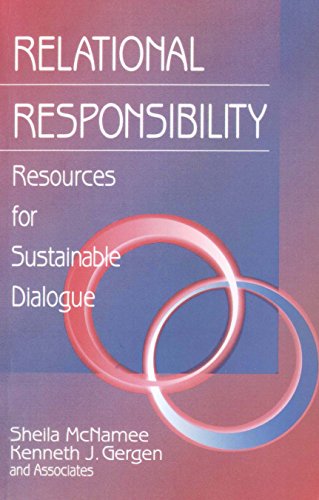Relational Responsibility Resources for Sustainable Dialogue
Sheila McNamee, Ph.D. is Professor Emerita of Communication at the University of New Hampshire and Vice President and Co-Founder of the Taos Institute. She is internationally known for her contributions to social construction theory and practice, focusing on dialogic transformation in psychotherapy, education, healthcare, organizations, and research. She is author of several books and articles, including Research and Social Change: A Relational Constructionist Approach (with D. M. Hosking, Routledge, 2012), Relational Responsibility: Resources for Sustainable Dialogue (with K. Gergen, Sage, 1999), and is co-editor of The Sage Handbook of Social Constructionist Practice (with M. Gergen, E. Rasera, & C. Camargo-Borges, 2020) and Education as Social Construction: Contributions to Theory, Research, and Practice (with T. Dragonas, K. Gergen, E. Tseliou, Taos WorldShare, 2015). ... Read more Read less
Questioning the tradition of individual responsibility, this pioneering book also transforms the concept of responsibility by giving centre stage to the relational process rather than to the individual - replacing alienation and isolation with meaningful dialogue. The first three chapters are the editors' own contribution on relational responsibility - followed by their analysis of a challenging case study involving the issue of child sexual abuse. The next 14 chapters contain responses from leading academics and professionals in the fields of communication, psychology and organizational development, which extend the editors' original dialogue. In conclusion, Sheila McNamee and Kenneth Gergen illustrate relational responsibility by taking the responses as suggestions for extending, redirecting and augmenting the original concept and practice of relational responsibility. ... Read more Read less











